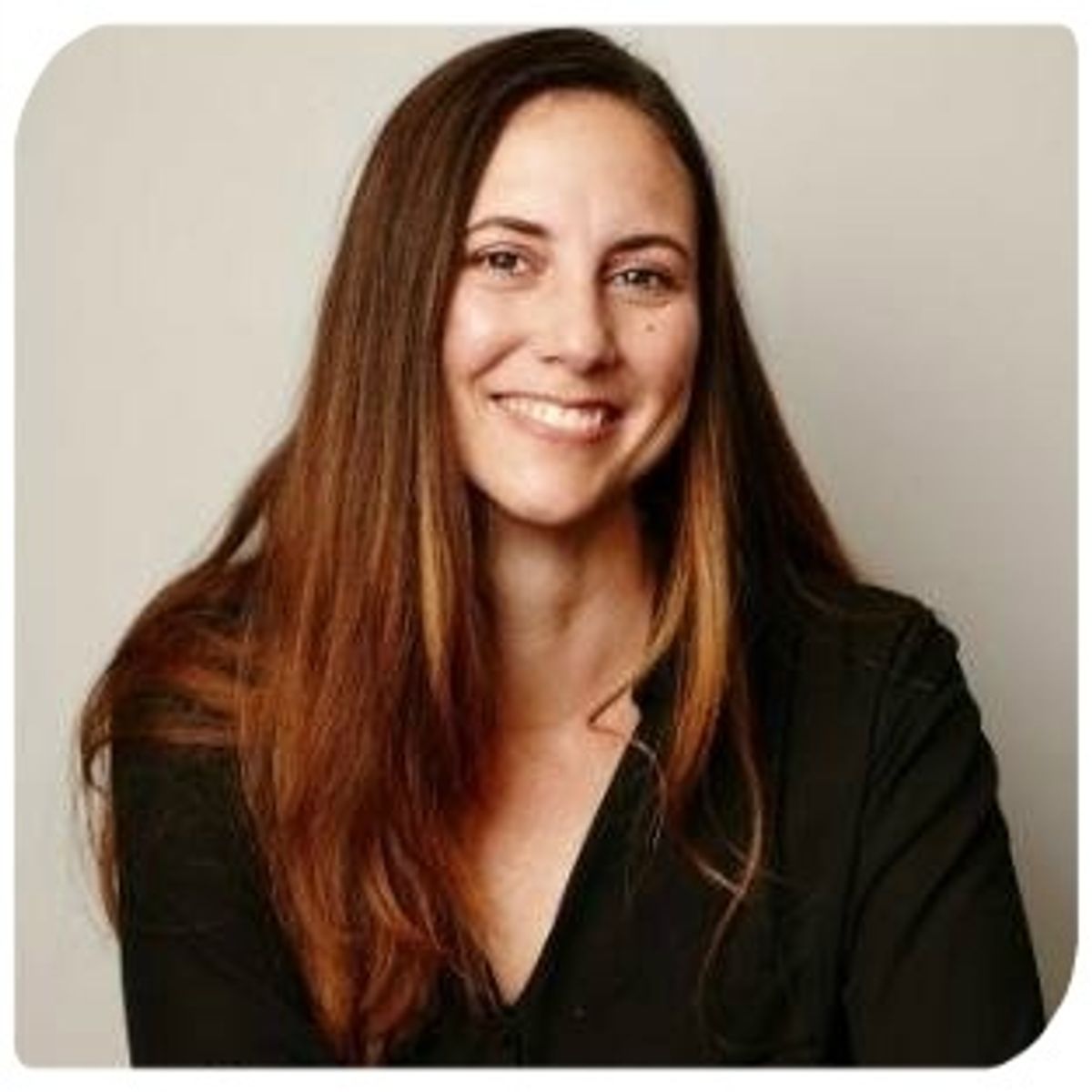Below is an article originally written by Laura Goldberg, the Head of Talent and Retention at PowerToFly Partner Logikcull, and published on June 4, 2018. Go to Logikcull's page on PowerToFly to see their open positions and learn more.
Michelle Price joined Logikcull in March as VP of Design, where she shepherds the company's product design and vision. An artist, designer, and entrepreneur, Price previously co-founded Intuit's QuickBooks Self-Employed product, growing it from a team of eight to over 200.
Customer empathy is the foundation of Price's work, where she seeks to make complex technology easy and delightful. We recently sat down with her to discuss her approach to design, how she puts together a team, and what inspired her to join Logikcull. A lightly edited transcript of that conversation follows.
Logikcull: Why did you decide to join Logikcull?
Michelle Price: Basically, I've rooted for the underdog all my life. I've always been motivated by the values of hope, humility, motivation, tolerance, the ability to stand up for personal convictions and face adversity, and the belief that people have value and that all things are possible. These values have guided me throughout my personal life, my career, and now to Logikcull.
I was excited by the idea that Logikcull can level the playing field in the legal world; the days of drowning the little guy or girl in paper in hopes that they won't find time or resources to go through them are over.
"I was excited by the idea that Logikcull can level the playing field in the legal world."
Another reason is that my husband works for a firm that does environmental legal work. His firm has been able to stop polluters, close down coal plants, and more. Logikcull routinely plays a critical role in helping his firm navigate and compete in discovery-heavy litigation, often against adversaries with deep pockets and substantial resources to bear.
My kids always say, "Daddy saves the world!" But daddy couldn't do it without this company.
Every job I've ever had has dealt with backing the little guy. I came from Intuit, where I helped build the whole self-employment product because I didn't want to just help the company, I wanted to help the person. In this respect, being able to help the team that might not be able to go through a case without having a product like this was a big reason I ended up here.
Logikcull: How would you describe the creative process when you're talking about product design? What are the skills that go into it? How do you accomplish things? How do you channel your creativity in that fashion?
Price: For me, it's always been about falling in love with the problem and not solutions.
It's my and my team's job to figure out the best way to help you do a task. The other day, I was looking through our customer messages and some of our users were suggesting that we make changes they thought would be helpful. But I wanted to understand their pain points first.
"I am a huge customer advocate and that's always going to be first."
I think it's super important to have empathy for the user and always come in with a natural curiosity for things.
As for vision, we're trying to make the most impactful decisions for our customers and for our business at this point, marrying those two particular things together. We're also thinking about what problems our customers will face in the future so the product can account for those as they emerge.
Logikcull: It seems like you're always putting yourself in someone else's shoes. How do you do that?
Price: As a product designer, you really need to be empathetic or you're just going to build a really crappy product. I think having that ability to hang out with the user and see what they do on a daily basis is important. If you're going to design a product for a stay-at-home mom and it has to be an app, you're not going to design it to be used with two hands; you need to observe people's behavior in the environment they're in.
"For me, it's always been about falling in love with the problem and not solutions."
I am a huge customer advocate and that's always going to be first.
Logikcull: As you're building a customer-focused product, what do you seek in a team?
Price: I have been lucky to be on a lot of amazing teams and see different organizational structures over the past 20 years. The two traits that I really keep coming back to are passion and natural curiosity. Those particular items really just instill the foundation of an amazing product designer, PM, or an amazing human being.
"That's what I'm searching for—a team that has a lot of passion, a team that really wants to take risks when it comes to testing out things."
I think the type of team that I'm building is one where everybody has to have that foundation. I'm looking for people that are visionaries. I'm looking for people that are more tactical. I'm pairing up strengths and different qualities to make a really nice team, because not everybody can do everything; you're not supposed to.
So, pairing up someone who's a blue-sky thinker with someone who's super detail-oriented makes an awesome combination. That's what I'm searching for—a team that has a lot of passion, a team that really wants to take risks when it comes to testing out things.
I also find it important to have the ability to throw out a ton of different ideas and feel okay if none of them happen. I was at a conference recently and a speaker said, "If you're not failing 50 percent of the time, you're not doing anything." That's an awesome motto because if you're not experimenting, you're standing still.
Logikcull: How would you describe your leadership style?
Price: I am definitely more of a diplomat, although I've had colleagues say to just put a stake in the ground and have everybody follow me. I find that doesn't work. I don't like titles like "Senior" and "Principal." I really want a level playing field. Regardless if you're an intern or you have 20 years of experience, you can offer something.
I've been fortunate enough to be in companies where I've had a voice as an intern and I've had a voice as the senior. Having that input at all stages makes a huge difference. It's one of the reasons why I mentor women starting businesses now.
Logikcull: Can you tell us a little about that? How did you get into it?
Price: I started my own business when I was 25. I ran it for almost 7 years. About halfway in, I realized I needed to have health insurance and all the basic things that as a small business owner you just can't pull together. So, I went part-time on my business and then I went to work for Halsey Minor, the founder of CNET. What I realized is I had so much passion around my business and such little passion working for somebody else.
I wanted to be able take all the things that I've learned and share them with others. I wanted to show them how to structure their goals from small to big—from guerrilla marketing to creating a good outreach letter to sourcing a manufacturer.
When I started, there was nothing on Google. There were business plans, but they weren't designed for startups. I wanted to make things more approachable for women who are thinking about stepping into that world because often all those documents about starting your own business don't resonate with early career professionals or startups.
Since starting, I've switched a bit from helping businesses to mentoring early career designers. I get a lot of them connecting with me through LinkedIn. People reach out and ask me to look at their portfolios. I would have liked someone to do that for me when I was starting out. So I do take time to make sure and go through and give them pointers and put them in touch with others who can help.
Logikcull: Tell us about your time here so far. What have you learned? What do you wish you'd known before coming in?
Price: I've been here almost two months now. I would say that the product is incredibly powerful and the people are amazing. You come here, especially from a corporate background, and it's a very different feel. It's very refreshing.
I was telling somebody I'm trying to recruit that there's levity here and it's levity that you wouldn't find in other places.




